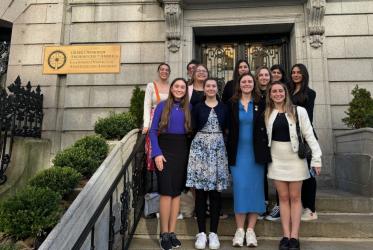Displaying 1 - 20 of 572
Taxes and gender justice: how do we bridge the divide?
25 April 2024
Voice of churches vital during UN women’s rights talks
28 March 2024
On International Women’s Day, “we want us alive”
13 March 2024
As femicide cases rises, Kenyan religious leaders move to act
06 February 2024
In Angola, WCC takes human rights approach to obstetric fistula
01 February 2024












